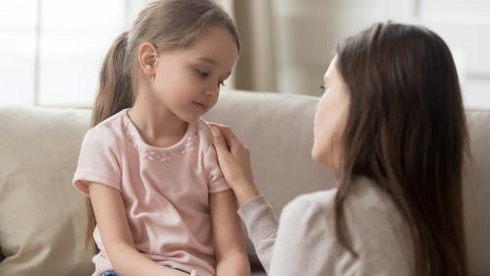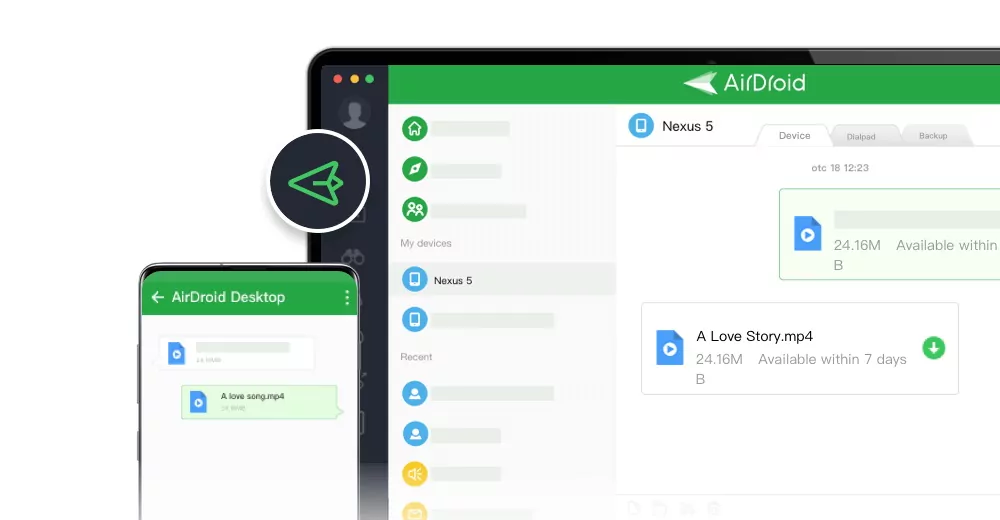How to Help a Child Regulate Their Emotions
We can't avoid emotions because they are literally the core of what we are. In fact, emotion can influence literally everything we do daily. This means if we don't regulate our emotions, we can end up making disastrous decisions that might ruin our lives for a lifetime or big time.
And so, if you're a parent, you should learn how to help a child regulate their emotions to help them grow up into responsible and reasonable individuals. Emotions are a critical part because when a kid is able to regulate their emotions, they have an upper hand when dealing with any trouble. It helps them have clear thoughts; critical thinking is essential in such scenarios.

Remember, the key target here is to help your child distinguish the difference between logic and emotions because this is what will make them better and effective individuals. With that said, let's now discuss effective ways to help your child regulate their emotions:
3 Effective Ways on How to Help a Child Regulate Their Emotions
As noted, the goal is to help your kid not only manage their emotions but also be able to discern the difference between logic and emotions.
So, what ways should you adopt to help your child regulate their emotions?
Well, let's have a look:
1Help Your Kids Slow Down
Emotions make everyone run wild in various ways.
For example, if your kid is happy, they scream or laugh out loudly out of joy while doing some jittery things because of the feel-good emotions. On the other hand, if they are mad, they can opt to do things like lashing out loudly while tossing things around or breaking them.
So, at this moment, what should you do as a parent or teacher?
Well, both parents and teachers have a crucial responsibility in fostering a child's behaviours. This includes their ability to think carefully in any situation and, more importantly, make informed decisions, as opposed to acting on impulse.
But what does this entail?
Well, this process or step entails guiding children to do specific things when they're too emotional, such as:
- Pause for a bit
- Reflect on the situation itself
- Choose responses that are not only effective but, more importantly, well-thought-out (keeping consequences in mind)
This step teaches them the valuable skill of self-control, which is essential in encouraging them to consider the consequences of their actions.
Additionally, encouraging self-reflection will ultimately help them navigate life's challenges with ease, which makes them mature into responsible individuals.
2Learn to Praise Them More Than You Punish Them
Does punishing less and praising your kid more have some psychological benefits?
Well, the answer is YES, it does.
This is one of the effective ways to help a child regulate their emotions. In fact, this strategy is rooted in the understanding that excessive punishment can be counterproductive.
But is this understanding true, though?
Well, to a significant point, yes. For example, when dealing with children who struggle with emotional regulation or, to put it simply, anger issues. If you're not careful when handling these kids, you can create a big-headed kid who will be immune to discipline, which isn't good.
Here's a good explanation of how good this strategy is and how it works:
The behavioural impact of strict punishment
If you are dealing with a child who has difficulties managing their emotions, responding to their misbehaviours with strict punishment each time can easily backfire.
In fact, research suggests that exerting harsh punishments on such kids isn't recommended. This is because it can worsen emotional issues. And you know that when this happens, it can then lead to more aggressive or negative reactions from your child.
Ensure a healthy balance between Positive vs Negative Interactions
Have you ever realized that when you applaud your kid for even a little effort they put in, they tend to be closer and more positive and responsive to you? Yes, this is something that is still in effect as an adult.
So, why not utilize the same approach?
For example, your kid was trying to help you clean the windows, but he ended up breaking one of the windows. So, should you applaud or punish?
Well, praising their intentions and actions is advisable, then slightly pointing out their mistake and letting them know they can do better or the proper ways to do it.
Focusing on positive attention, praise, and giving rewards for good behaviour will outweigh the little punishment you give. Furthermore, it incentivizes them to be good or take positive steps to handle their emotions better.
Encourage Positive Opposites
Instead of solely addressing your kid's unwanted behaviours through punishment. You should think about "positive opposites." What is this?
The positive opposite actually means identifying and reinforcing the desired behaviour that should replace the problematic one.
For example, they get so emotional that they start throwing things around – so, instead of doing that, why not take a deep breath and then short walk just around a few blocks and then get back in 10, 20 or 30 minutes.
You see! This approach helps them make impulsive decisions rather than take time, calm down, and then critically think about what next step to take.
Overall, praise plays a significant role in this approach. By praising your child for exhibiting the desired behaviour, you can help reinforce the idea that such behaviour is valued and rewarded, but the other bad ones are not. This can boost the child's self-esteem and motivation to continue behaving positively.
So, ensure that punish less praise more to effectively help children with emotional regulation challenges.
3Be a Team: Help You Learn How to Regulate Your Emotions
If you've ever dealt with a child who's struggling to manage their emotions, you know it can be a bit of a rollercoaster ride. But the good news is you don't have to help them solve this problem alone.
In fact, being a team is the secret sauce here. But how?
Well, a kid trying to learn how to regulate their emotions usually thrives very well on consistency. Therefore, everyone involved in their upbringing, from parents and grandparents to teachers and caregivers, needs to get on the same page.
As Dr. Lochman puts it, "It's really important for parents, grandparents, teachers, and other caregivers to work together to address a child's self-regulation problems."
Keep in mind that when we're all on the same team, we can conveniently provide a stable and predictable environment for our child. This consistency in itself helps them not only understand the rules you've in place but also the expectations. Therefore making it easier for them to learn how to handle their emotions and also feel supported.
So, why not gather around and share our insights, which will let us work together effectively to support our kids as they learn effective emotion regulation methods?
Overall, remember, teamwork makes the dream work.
What Roles Should Parents and Teachers Play?
Well, there are three main role models for children – parents and teachers are two of them. This is because they play a crucial role in helping children develop during their crucial growth stage. And so, with relevance to this topic, these two can help children develop better impulse control and make thoughtful choices.
How do they do this? Well, here's how they can contribute to that:
- Modelling Their Behaviour: As noted, we are, in fact, the primary role models to our kids as adults. This means we can simply model thoughtful decision-making by showing how to handle different situations. For example, demonstrating patience and taking time to consider options before acting.
- Effective Communication: They say communication is the key, which is 100% right. Lack of communication can create chaos over time. Therefore, parents and teachers can ensure open and non-judgmental communication is always there between them and children. This step creates a healthy platform for discussions about the consequences of impulsive actions.
- Teaching Strategies: We model our kids, and one way to do so is by teaching specific strategies to handle different situations in life. This can include teaching things like deep breathing, counting to ten, or taking a moment to think before responding.
- Setting Boundaries: Boundaries are everything, especially when dealing with a kid with anger issues. This means you should have clear and consistent rules and boundaries to help children understand the limits of acceptable behaviour.
- Emotional Regulation: Emotional support is also a crucial factor. When a kid has anger issues, you need to tap into their emotions and show them you understand their feelings. Put yourself in their shoes. Because when kids feel like you understand and relate to them, they will be willing to put in effort as well. This will help your children recognize and manage their emotions and reduce impulsive reactions.











Leave a Reply.